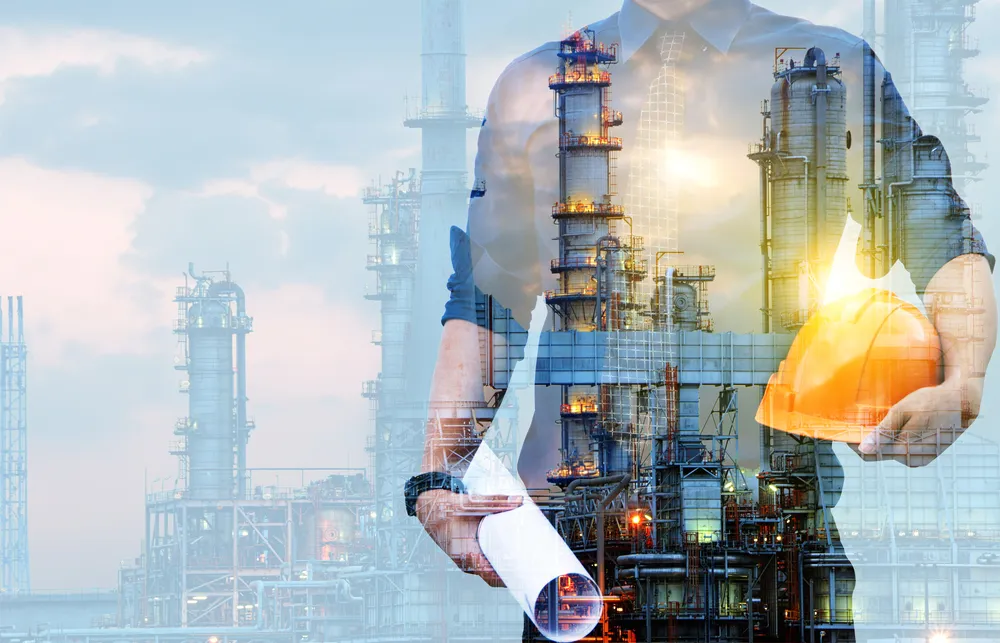Process Equipment and Piping Resilience: Failure Management, Prevention, and Efficient Repair Course
Introduction:
Equipment and piping systems in the process industries rely on the functional design by qualified personnel and their operation and maintenance within defined parameters known as the Integrity Operating Window (IOW). This course on Process Equipment and Piping Resilience to Repairs and Prevention covers fundamental principles, methodologies, industry standards, and practical tools to enhance the skills of design, operation, and maintenance professionals, contributing to plant safety and reliability.
Objectives:
At the end of this course, participants will be able to:
- Expand their comprehension of mechanical integrity, emphasizing proper practices in design, operation, support mechanisms, and maintenance, with a focus on individual and team roles in managing change.
- Apply industry codes, standards, and best practices to perform basic design calculations for pressure equipment using appropriate methods and tools.
- Identify and understand degradation mechanisms affecting equipment over its lifecycle, including damage identification, mitigation, and impact forecasting.
- Conduct damage and failure analysis to prevent similar issues in the future.
- Enhance skills in hazard identification, assessment, and risk treatment.
Training Methodology:
- Workshops
- Case Studies
- Simulations
- Group Discussions
- Interactive Sessions
- Problem-Solving Exercises
Course Outline:
Unit 1: Key Design Considerations, Guidelines, and Practices
- Overview of Process Equipment
- Plant Integrity and Reliability
- Relationship between Engineering, Operation, and Maintenance
- Management of Change
- Fitness for Purpose
- Service Conditions, Equipment Sizes, and Functional Performance
- Quality and Lifecycle Costs
- Safety by Design
- Codes, Standards, and Compliance
- HS&E Considerations and Obligations
Unit 2: Design and Operation of Pressure Equipment
- Pressure Vessels and Reactors
- Materials of Construction and Standards
- Design Methodology
- ASME Boiler and Pressure Vessel Code (Sections V, VIII, IX)
- Storage Tanks (Types and Applications)
- API 650 Overview
Unit 3: Piping Systems
- Materials and Construction Methods
- Design Methodologies (Hydraulic, Pressure, Mechanical)
- ASME B31.1 and B31.3 Standards
- Allowable Bending and Support Structures
- Piping System Components (Valves and Fittings)
- Work Examples
Unit 4: Overpressure Protection
- Types and Functions of Pressure Relief Devices
- Code Requirements
- Sizing Codes (API 520, 521)
- Operation and Maintenance (API 576)
Unit 5: Design and Operation of Thermal Equipment
- Process Heaters (Types and Design)
- API 560 and API 530 Standards
Unit 6: Boilers
- Types and Configurations (Water Tube, Fire Tube, Waste Heat Recovery)
- Design Principles and Functionality
- ASME B&PVC Section 1 and Section 4, ASME PTC-4
Unit 7: Heat Exchangers
- Types and Applications (Shell and Tube, Plate, Air Cooled)
- Thermal and Mechanical Design
- TEMA Design Standards (API 660, API 661)
- Operation, Fouling, and Performance
Unit 8: Design and Operation of Fluid Handling Equipment
- Pumps (Centrifugal and Positive Displacement)
- Performance Characteristics
- ANSI and API 610 Standards
- Work Examples
Unit 9: Compressors
- Types (Centrifugal, Screw, Reciprocating)
- Design Considerations and Standards
- Operation and Maintenance
Unit 10: Electric Motors
- Types and Applications
- Operation and Maintenance
- Condition Monitoring (Vibration and Lubricant Oil Analysis)
- Troubleshooting and Improvement
Unit 11: Degradation and Condition Assessment of Process Equipment
- Degradation Processes (Corrosion, Erosion, Fatigue, Hydrogen Attack)
- API 571 Overview
- Industrial Failure Prevention
- Inspection and Testing
- Nondestructive Testing (NDT) Methods
- Risk-Based Inspection (API 580, API 581)
- Fitness for Service Assessment (API 579)
- Maintenance Strategies and Best Practices
- Reliability Centered Maintenance (RCM)
Unit 12: Failure Mechanics
- Mechanisms of Wear and Failure
- Corrosion, Fatigue, and Other Failure Modes
- Material Properties and Selection (Steels, Alloys, Plastics)
- Economic Considerations in Material Selection
Unit 13: Failure Prevention by Design
- Causes of Failure (Design, Operation, Maintenance)
- Material Specification and Selection
- Physical Characteristics of Components
- Design Elements for Pressure Vessels, Piping, and Storage Tanks
- Damage Processes and Prevention
Unit 14: Process Equipment Failures
- Common Failures in Pressure Vessels, Piping, and Boilers
- Case Studies
- Flow-Induced Vibrations
- Hydraulic Pulsations
- Supports and Restraints
- Wind Actions and Industry Practices
Unit 15: Inspection, Assessment, and Maintenance
- Inspection Strategies and Risk-Based Inspection (API 580)
- Fitness-for-Service Assessment (API 579)
- NDT Methods and Techniques
- Damage Assessment and Method Selection
- Pigging and Cleaning Procedures
Unit 16: Operation and Maintenance
- Maintenance of Structures and Facilities
- Repair and Modification of Pressure Equipment and Piping
- Consequences of Equipment Failure
- Fault Analysis Methods


















